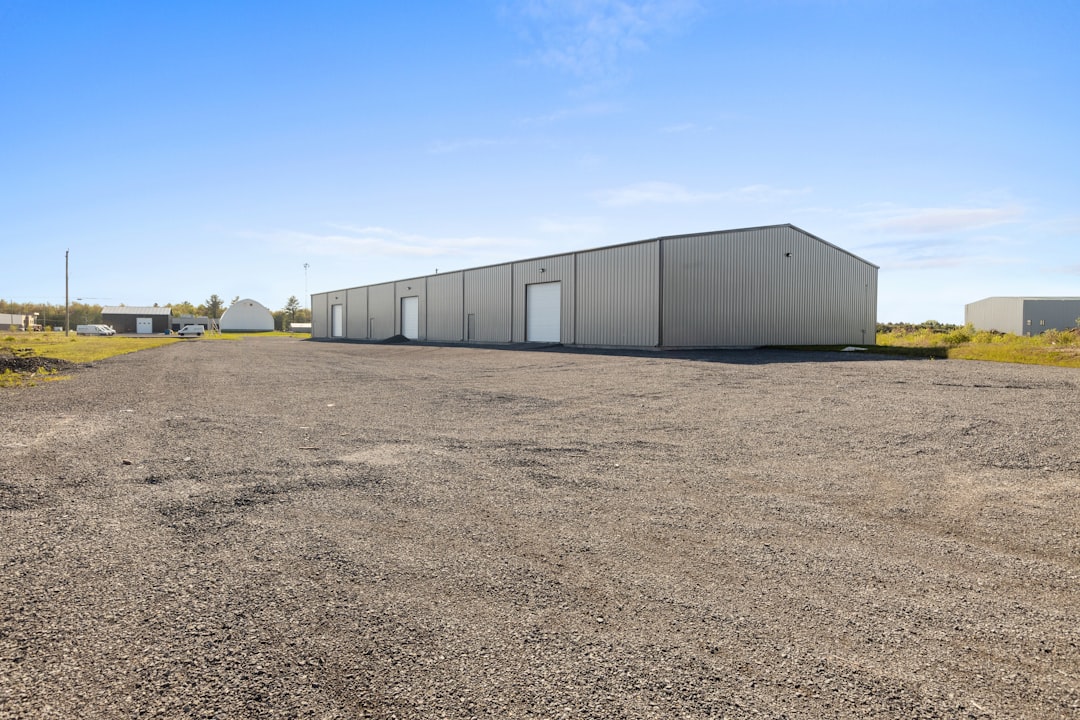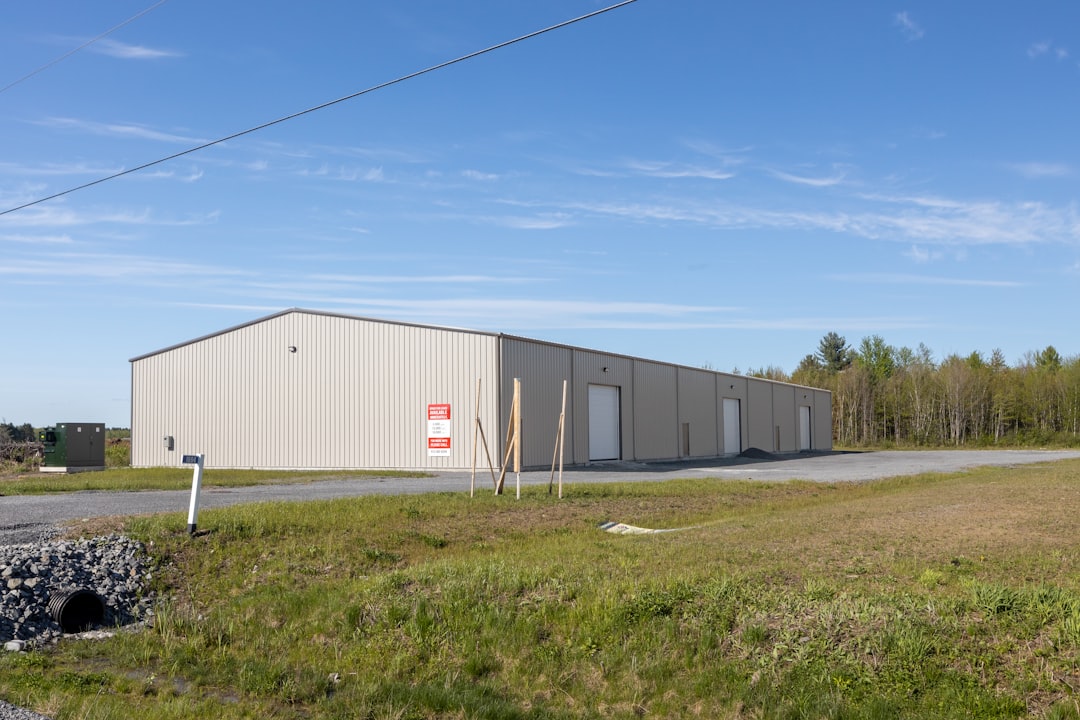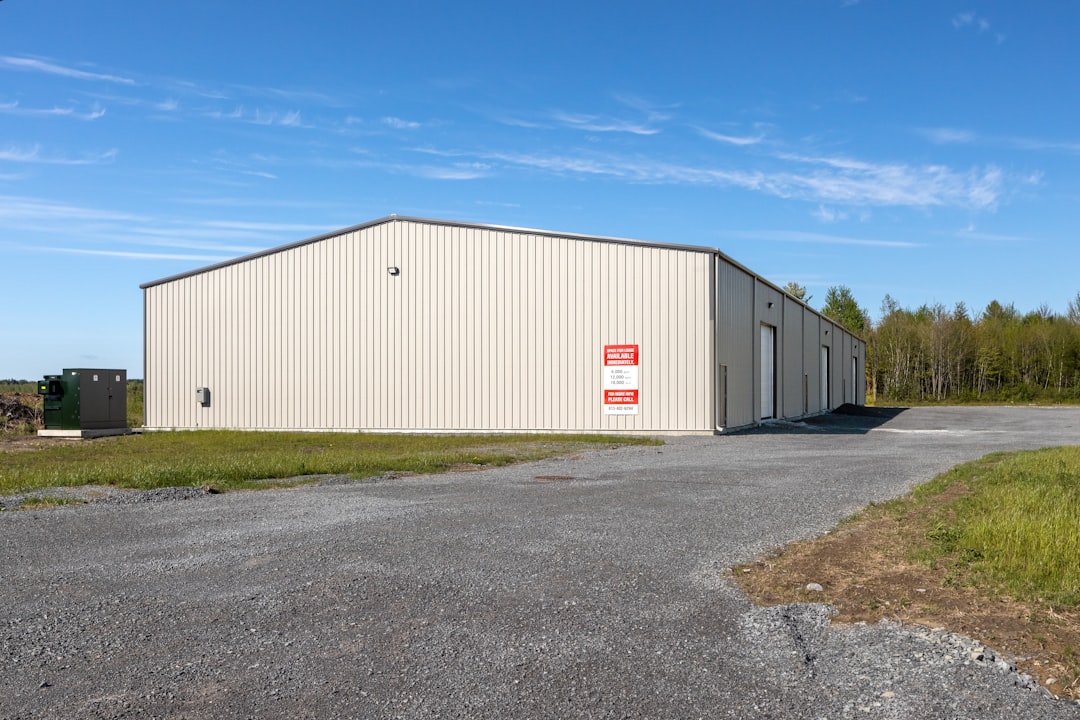
Supercharge your lead generation with a FREE Google Ads audit - no strings attached! See how you can generate more and higher quality leads
Get My Free Google Ads AuditFree consultation

No commitment
Supercharge your lead generation with a FREE LinkedIn Ads audit - no strings attached! See how you can generate more and higher quality leads
Get My Free Google Ads AuditFree consultation

No commitment
Supercharge your lead generation with a FREE Meta Ads audit - no strings attached! See how you can generate more and higher quality leads
Get My Free Google Ads AuditGet My Free LinkedIn Ads AuditGet My Free Meta Ads AuditFree consultation

No commitment
Supercharge your lead generation with a FREE Google Ads audit - no strings attached! See how you can generate more and higher quality leads
Get My Free Google Ads AuditFree consultation

No commitment
In today's complex marketing landscape, effective B2B marketing demands a strategic blend of online and offline channels working together seamlessly. Online channels like social media establish digital brand awareness, email marketing nurtures ongoing relationships, and SEO ensures organic visibility. Meanwhile, offline channels such as industry events provide face-to-face connections, direct mail delivers tangible interactions, and trade publications position thought leadership. Within this integrated ecosystem, Google Ads assumes a crucial role in capturing high-intent prospects when they're actively searching for solutions. This effectively bridges the gap between broader awareness initiatives and your sales process. For industrial real estate firms, Google Ads serves as a powerful tool to connect online and offline marketing efforts by intercepting decision-makers at the moment of need, targeting with precision using industry-specific language, measuring ROI through tracking across click-to-quote-to-closed deals, and complementing other channels through remarketing strategies.

Industrial real estate firms face unique challenges in attracting qualified buyers and tenants due to complex sales cycles and highly specific property requirements. A precise, data-driven Google Ads strategy unlocks new efficiency in identifying and engaging high-value prospects, ultimately driving measurable return on investment. For a comprehensive look at digital marketing approaches that have driven growth in this sector, review this industrial manufacturing digital marketing case study.
With advanced targeting and analytics, firms can move past generic online marketing for industrial properties and instead personalize outreach to in-market buyers, logistics operators, and corporate real estate decision-makers. Leveraging unified data platforms, marketers can pinpoint previously anonymous site visitors using Sona Identification and convert intent signals into high-converting audience segments enriched for Google Ads targeting.
Begin with comprehensive keyword research tailored to industrial real estate advertising. Prioritize transaction-focused phrases like "industrial warehouse for lease," "manufacturing space for rent," and "logistics property near [city]." Layer in educational and long-tail keywords to capture prospects early in their site selection process, and use negative keywords to filter out irrelevant queries. With enriched visitor data, marketers can identify which keyword themes yield the highest engagement from decision-makers, informing ongoing optimization. For inspiration on keyword selection, explore top Google Ads motivated seller keywords.
Leverage intent data and firmographic details to segment audiences by company size, industry, and job function. Use Sona’s Audiences tool to automatically update Google Ads lists as prospects interact with your website or CRM, ensuring ads reach only those accounts progressing through the funnel. As new high-value visitors are identified, they can be added to customized campaigns targeting similar buyers, optimizing both reach and relevance.
Craft ad copy that addresses the specific requirements of industrial tenants and buyers, such as clear height, loading dock access, or proximity to transportation hubs. Use dynamic keyword insertion to personalize headlines and descriptions to searcher context. For display and video, highlight property features visually and include strong calls to action that correspond with the user’s stage in the buying journey. Creative alignment, informed by real-time engagement data, ensures messaging resonates with the right audience segments.
Direct prospects to landing pages tailored to the industrial asset class, featuring interactive tools like space planners or virtual tours. Limit form fields to essential information to reduce friction, and surface trust signals such as tenant testimonials or case studies. With advanced tracking, marketers can attribute conversions to specific ad creative and audience segments, enabling continuous improvement and higher ROI.
Implement advanced conversion tracking to capture both online and offline outcomes, including property tours, signed leases, and RFP submissions. Integration with CRM systems allows seamless syncing of enriched leads and audience segments back into Google Ads and sales workflows. For an example of effective PPC results, see this case study on targeted PPC for industrial manufacturers. Marketers can then allocate spend to top-performing campaigns and audiences, ensuring every dollar is tracked and maximized for industrial property marketing efficiency.
This step-by-step framework empowers industrial real estate teams to move from siloed digital marketing for industrial real estate to a unified, high-impact strategy that continuously adapts to market signals and delivers superior lead generation results. Ready to elevate your lead generation? Get started for free with Sona.

Industrial real estate firms face high-value, low-frequency transactions that require connecting with a specialized audience of logistics, manufacturing, and supply chain decision-makers. Google Ads for Industrial Real Estate Firms delivers unmatched precision, enabling marketers to reach in-market buyers at the exact moment they signal intent and search for properties, sites, and solutions.
Unlike traditional channels, Google Ads provides the real-time flexibility needed to respond to fast-moving opportunities, such as sudden spikes in demand for warehouse space or strategic land acquisitions. Digital marketing for industrial real estate allows firms to quickly pivot campaigns, allocate budget to regions with emerging need, and track every click, inquiry, and deal with advanced measurement tools.
Modern platforms now enable marketers to move beyond anonymous website traffic by identifying which companies and buyers are engaging with property listings or project details. This enriched audience data allows teams to prioritize outreach to firms actively evaluating industrial space, rather than relying on outdated or generic prospect lists. By integrating real-time visitor identification with Google Ads targeting for real estate, marketing teams can adjust spend to focus on accounts that demonstrate high purchase intent, ensuring efficient use of budget for industrial property marketing.
Dynamic audience management ensures that as prospects interact with listings, download brochures, or request tours, their profiles are updated and segmented automatically. This allows for retargeting strategies and messaging to evolve, matching the prospect’s stage in the buying cycle. Advanced conversion tracking connects both online and offline engagement to contract outcomes, giving firms a complete picture of their real estate PPC campaigns’ effectiveness and true ROI. When audience and lead data sync seamlessly with CRM and sales platforms, industrial real estate firms bridge the gap between marketing and revenue, driving more qualified deals with less wasted spend.
Ready to see how real-time insights and advanced targeting can transform your deal flow? Get started for free with Sona.

Each campaign type plays a distinct role in a comprehensive Google Ads strategy for industrial real estate firms. By integrating real-time data, intent signals, and enriched audience segmentation, revenue teams can focus spend on high-value segments, achieve measurable improvements in cost-per-lead, and maximize ROI throughout the industrial property sales funnel. Ready to optimize your campaigns? Get started for free with Sona.

Industrial real estate firms that want to outpace market growth need to move beyond generic outreach and embrace data-driven online marketing for industrial properties. Growth opportunities are most often found by layering intent-based digital strategies with advanced analytics, directly connecting marketing actions to revenue outcomes.
Expanding reach starts with vertical keyword targeting, where campaigns are built around the specific terms decision-makers use to search for industrial spaces, logistics hubs, and manufacturing facilities. This approach ensures visibility among high-potential buyers and tenants, rather than diluting spend across broad or irrelevant terms. By focusing ad groups on nuanced phrases such as “build-to-suit warehouse [city]” or “cold storage facility lease,” firms attract inquiries from stakeholders with immediate needs, increasing conversion rates and reducing wasted impressions. For inspiration, examine this comprehensive guide to PPC for industrial businesses to see how granular keyword strategies can unlock new demand.
A robust competitor gap analysis helps identify segments and search terms where competitors are under-invested or absent. This analysis uncovers white space for ad placements, enabling industrial real estate advertising campaigns to gain traction in untapped markets. Integrating industry-specific placements, such as targeted display ads on logistics and manufacturing publications, further ensures that messaging meets the right audience in their preferred digital environments. If you want to dig deeper into effective targeting, explore vertical segmentation techniques that align with specific buying stages.
Content retargeting is critical for industrial property marketing, as purchase cycles are long and decision-making involves multiple stakeholders. By synchronizing retargeting strategies with content marketing objectives, firms can nurture prospects with relevant case studies, virtual tours, and ROI calculators as they move from awareness to consideration. When marketers leverage account-level analytics, they prioritize outreach based on real company engagement instead of anonymous website traffic, ensuring follow-up efforts focus on high-intent organizations.
Some leading firms utilize dynamic audience segmentation that updates as prospects interact with marketing assets. As leads move through the funnel—downloading a whitepaper, booking a virtual tour, or comparing locations—campaign audiences automatically refresh. This ensures timely, personalized engagement and maximizes the impact of each marketing dollar. Growth comes from unified, real-time data that connects ad spend to true business outcomes, supporting repeatable revenue generation and scalable industrial real estate lead generation. Ready to accelerate your pipeline? Get started for free with Sona.

Audience segmentation forms the foundation of high-performance digital marketing for industrial real estate firms. By refining target groups based on precise categories such as manufacturing, warehousing, or distribution operations, marketers can serve messaging tailored to each facility type’s unique procurement cycles and decision drivers. For examples of segmentation in action, see this case study highlighting digital marketing tactics that drove growth for an industrial manufacturing client.
Segmentation strategies begin by mapping the industrial customer journey, identifying key inflection points for lease acquisition, site expansion, or facility upgrades. Marketers then layer on real-time intent data, such as recent searches for “flex warehouse lease” or “automated distribution center,” to create highly specific ad groups that align to each segment’s stage in the buying process. This level of granularity enables industrial property marketing to reach logistics managers, plant executives, and site selectors with offers and content that directly reflect their needs and timelines.
Modern platforms accelerate results by integrating advanced visitor identification and intent monitoring into audience segmentation workflows. Marketers can move beyond generic targeting to pinpoint organizations actively reviewing industrial spaces, capturing company names and engagement signals as they happen. With this visibility, campaigns dynamically update and prioritize audiences as leads progress from research to negotiation, ensuring budget is always focused on the highest-converting accounts. Conversion paths can be validated and enriched through tight CRM and ad platform integrations, syncing enriched audience profiles and real-time lead data into Google Ads and leading CRM systems. The immediate feedback loop reduces delayed engagement, allowing sales and leasing teams to respond while interest is strongest and increasing the efficiency of industrial real estate lead generation. If you’re ready to activate advanced segmentation and intent tools for your industrial real estate marketing, get started for free with Sona.

| Industry | Keyword | Monthly Search Volume | Competition Level | Low Bid | High Bid |
| Industrial Real Estate Firms | industrial real estate investment firm | 10 | HIGH | 2.53 | 4.4 |
| Industrial Real Estate Firms | retail real estate company | 30 | LOW | 1.44 | 3.5 |
| Industrial Real Estate Firms | industrial real estate companies | 170 | LOW | 2.05 | 5.33 |
Industrial real estate firms rely on keyword strategies that capture the nuanced, high-intent searches unique to logistics, warehousing, and manufacturing property decision-makers. Google Ads for Industrial Real Estate Firms focuses on identifying and bidding on terms that mirror the inquiries of procurement managers, facility directors, and industrial investors, such as "industrial warehouse for lease [city]," "cold storage facility near me," or "manufacturing space with loading docks." The specificity of these terms not only elevates ad relevance but also reduces wasted spend by filtering out general real estate traffic. Precision targeting in industrial property marketing means leveraging geo-modifiers, asset class details, and operational features in every keyword selection, ensuring campaigns only appear to in-market prospects with real purchase intent.
Sophisticated marketers pair keyword research with real-time visitor identification and intent analysis, advancing beyond basic demographic or location targeting. This approach enables the segmentation of audiences based on company size, industry vertical, and search behaviors, unlocking the ability to adjust bids and messaging instantly as new insights emerge. For example, syncing keyword-driven audiences with CRM and site analytics surfaces which industrial tenants or corporate buyers are most likely to engage, facilitating dynamic retargeting and nurture programs. As prospects move from research to active consideration, dynamic audience updates ensure that ad budgets are continually redirected toward accounts showing the strongest buying signals.
ROI measurement in industrial real estate advertising hinges on tying both online and offline actions to specific keywords and campaigns. By integrating advanced conversion tracking—including phone calls, form fills, and in-person tours—firms gain full visibility into which keyword groups drive actual revenue, not just clicks. This data-driven feedback loop supports ongoing optimization, allowing teams to double down on the highest-performing search terms and creative, while excluding underperforming segments. When CRM and ad platform data are unified, marketers can seamlessly attribute closed leases or property sales to the original keyword touchpoints, demonstrating the tangible value of digital marketing for industrial real estate and enabling more accurate forecasting for future campaigns. If you’re ready to unify your keyword, audience, and conversion data, get started for free with Sona.
Industrial real estate firms gain a competitive advantage when campaign execution is systematic and data-driven. By tightly integrating each step, teams can shorten response times, improve lead quality, and maximize advertising ROI. For additional insights on maximizing marketing impact in the industrial sector, explore this case study highlighting digital marketing tactics that drove growth for an industrial manufacturing client.
Start by creating a comprehensive set of keywords that reflect how industrial buyers and tenants search for properties. Focus on transactional phrases such as “industrial warehouse for lease [city],” “logistics facility near [port],” and “manufacturing space available.” Supplement these with long-tail variations like “cold storage facility with dock doors” to capture specific requirements. Use negative keywords to filter out irrelevant traffic, ensuring only high-intent queries trigger ads.
To further refine targeting, leverage intent signals from site visits and inbound inquiries. When a prospective tenant browses multiple high-value listings or requests information about specific property types, these behaviors feed directly into dynamic keyword lists. This approach allows budget to automatically shift toward the highest-converting search terms, optimizing spend and uncovering new demand pockets in real time.
Effective ad copy for industrial real estate speaks directly to operational priorities—such as proximity to logistics infrastructure, clear ceiling heights, and energy efficiency certifications. Highlight unique selling points in headlines and descriptions, for instance, “32’ Clear Height Warehouses Minutes from Rail,” or “LEED-Certified Distribution Centers with Flexible Lease Terms.” Include strong calls to action that prompt engagement, like “Schedule a Property Tour” or “Download Space Planning Guide.”
Dynamic ad personalization further increases relevance. As audiences move through the funnel, real-time audience data enables tailored messaging based on company size, previous interactions, or asset preferences. With this level of granularity, ad creative evolves alongside buyer intent, ensuring every impression is contextually relevant and conversion-focused.
Landing pages for industrial property marketing must create a seamless transition from ad click to inquiry. Use clear, benefit-driven headlines, concise property specifications, and interactive elements such as site maps or virtual tours. Keep form fields minimal—typically name, company, and contact—while offering optional details like move-in timelines to qualify leads without sacrificing conversion rates.
Credibility is reinforced through case studies, drone footage, and third-party certifications. When a visitor’s firmographic profile or browsing history is recognized, landing pages dynamically adapt featured properties, market data, or testimonials to match their interests. For strategies on connecting online actions with qualified pipeline, see how Sona Identification reveals visitors and scores intent. This alignment between ad intent and post-click experience accelerates decision-making and increases lead submission rates.
Continuous optimization is crucial for industrial real estate advertising success. Monitor performance metrics—click-through rate, cost per lead, and conversion rates—at the campaign, ad group, and keyword levels. Use A/B testing to refine ad copy and landing page layouts, prioritizing versions that generate the most qualified inquiries. Set bid adjustments by device, time of day, and location to reach buyers during peak research windows.
Advanced conversion tracking connects online actions (like form fills) with offline activity (property tours, lease negotiations), closing the loop on true ROI. CRM and marketing automation platforms synchronize audience segments and lead status, ensuring ads target only active, sales-ready accounts. As deals progress or company profiles change, audience lists update in real time, eliminating wasted spend and maintaining a consistent pipeline of high-intent prospects. This integrated approach enables revenue teams to act on the most valuable opportunities and scale industrial real estate lead generation efficiently. Ready to put these strategies into action? Get started for free with Sona.
Expanding your industrial real estate presence demands a multi-pronged approach that blends strategic marketing, targeted partnerships, and data-driven optimization. Modern professionals in this sector benefit by aligning digital tactics with offline engagement and leveraging granular insights to uncover new growth opportunities.
To measure the impact of these efforts, robust conversion tracking is critical. Capturing both online and offline conversions—such as property tours booked via phone or leases signed after in-person meetings—provides a holistic view of campaign performance. Attributing every touchpoint to the correct source enhances budget allocation and helps optimize future campaigns. Seamless integration between your CRM and digital ad platforms ensures enriched audience data flows directly into your advertising ecosystem, enabling granular tracking and continuous improvement across all channels. Ready to experience streamlined growth? Get started for free with Sona.
As we wrap up our deep dive into leveraging Google Ads for industrial real estate firms, it's clear that a strategic approach can significantly enhance your online presence and lead generation efforts. By tailoring advertising strategies to the unique needs of the industrial real estate sector, you can effectively promote listings and capture the attention of potential clients.
Throughout this article, we explored the core challenges faced by industrial real estate firms, including the need for targeted visibility and efficient lead generation. We also discussed key strategies, such as utilizing specific ad formats and targeting options, to overcome these challenges. By integrating data-driven insights and aligning your Google Ads campaigns with industry-specific objectives, you can optimize your marketing efforts for maximum impact.
Imagine transforming your approach to digital advertising, where each campaign is not just an expenditure, but an investment yielding measurable returns. With the right tools and strategies, you can unlock new opportunities for growth and position your firm as a leader in the industrial real estate market. Embrace the potential to drive success in your advertising endeavors by implementing these actionable solutions.
To begin this transformative journey and harness the power of unified go-to-market data, start for free to experience the platform and its capabilities today.
The best practices for using Google Ads in industrial real estate include building targeted keyword lists, segmenting and enriching audiences, aligning ad creative to prospect needs, optimizing landing pages for lead conversion, and continuously measuring and optimizing campaigns for ROI.
Google Ads helps industrial real estate firms generate leads by capturing high-intent prospects actively searching for solutions, targeting them with precision, and using remarketing strategies to complement other marketing efforts.
Industrial real estate firms should use strategies such as search campaigns to capture high-intent leads, display campaigns for brand awareness, video campaigns for engagement, retargeting campaigns for re-engagement, and local campaigns to drive qualified traffic.
The budget allocation for Google Ads in the industrial real estate sector should be based on targeting high-value segments, using data-driven insights to focus spend on high-intent prospects, and adjusting based on campaign performance and ROI tracking.
Success in Google Ads campaigns can be measured by tracking conversion rates, cost-per-lead, and ROI through advanced conversion tracking that captures both online and offline outcomes, ensuring all touchpoints are attributed to their correct sources.
Join results-focused teams combining Sona Platform automation with advanced Google Ads strategies to scale lead generation

Connect your existing CRM

Free Account Enrichment

No setup fees
No commitment required

Free consultation

Get a custom Google Ads roadmap for your business
Join results-focused teams combining Sona Platform automation with advanced Meta Ads strategies to scale lead generation

Connect your existing CRM

Free Account Enrichment

No setup fees
No commitment required

Free consultation

Get a custom Google Ads roadmap for your business
Join results-focused teams combining Sona Platform automation with advanced LinkedIn Ads strategies to scale lead generation

Connect your existing CRM

Free Account Enrichment

No setup fees
No commitment required

Free consultation

Get a custom Google Ads roadmap for your business
Join results-focused teams using Sona Platform automation to activate unified sales and marketing data, maximize ROI on marketing investments, and drive measurable growth

Connect your existing CRM

Free Account Enrichment

No setup fees
No commitment required

Free consultation

Get a custom Google Ads roadmap for your business
Over 500+ auto detailing businesses trust our platform to grow their revenue
Join results-focused teams using Sona Platform automation to activate unified sales and marketing data, maximize ROI on marketing investments, and drive measurable growth

Connect your existing CRM

Free Account Enrichment

No setup fees
No commitment required

Free consultation

Get a custom Google Ads roadmap for your business
Over 500+ auto detailing businesses trust our platform to grow their revenue
Join results-focused teams using Sona Platform automation to activate unified sales and marketing data, maximize ROI on marketing investments, and drive measurable growth

Connect your existing CRM

Free Account Enrichment

No setup fees
No commitment required

Free consultation

Get a custom Google Ads roadmap for your business
Over 500+ auto detailing businesses trust our platform to grow their revenue
Our team of experts can implement your Google Ads campaigns, then show you how Sona helps you manage exceptional campaign performance and sales.
Schedule your FREE 15-minute strategy sessionOur team of experts can implement your Meta Ads campaigns, then show you how Sona helps you manage exceptional campaign performance and sales.
Schedule your FREE 15-minute strategy sessionOur team of experts can implement your LinkedIn Ads campaigns, then show you how Sona helps you manage exceptional campaign performance and sales.
Schedule your FREE 15-minute strategy sessionOur team of experts can help improve your demand generation strategy, and can show you how advanced attribution and data activation can help you realize more opportunities and improve sales performance.
Schedule your FREE 30-minute strategy sessionOur team of experts can help improve your demand generation strategy, and can show you how advanced attribution and data activation can help you realize more opportunities and improve sales performance.
Schedule your FREE 30-minute strategy sessionOur team of experts can help improve your demand generation strategy, and can show you how advanced attribution and data activation can help you realize more opportunities and improve sales performance.
Schedule your FREE 30-minute strategy sessionOur team of experts can help improve your demand generation strategy, and can show you how advanced attribution and data activation can help you realize more opportunities and improve sales performance.
Schedule your FREE 30-minute strategy session





Launch campaigns that generate qualified leads in 30 days or less.
